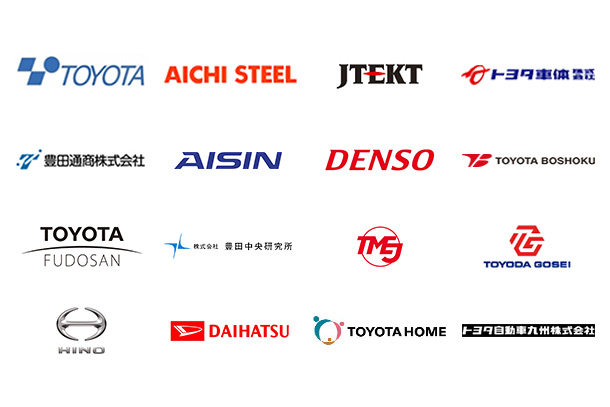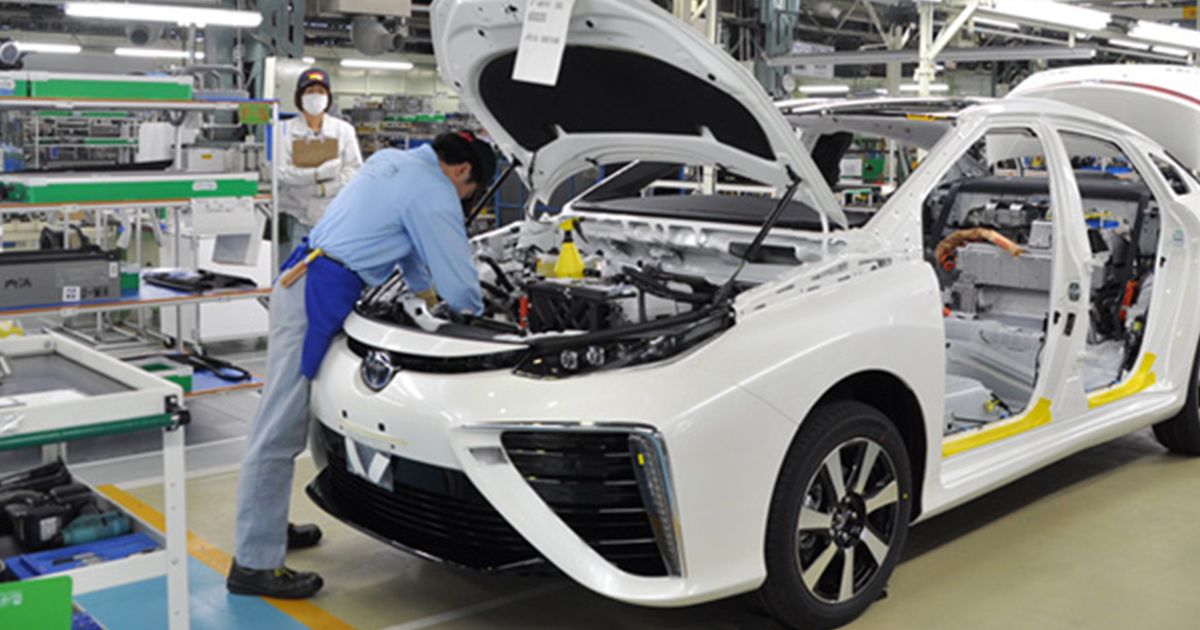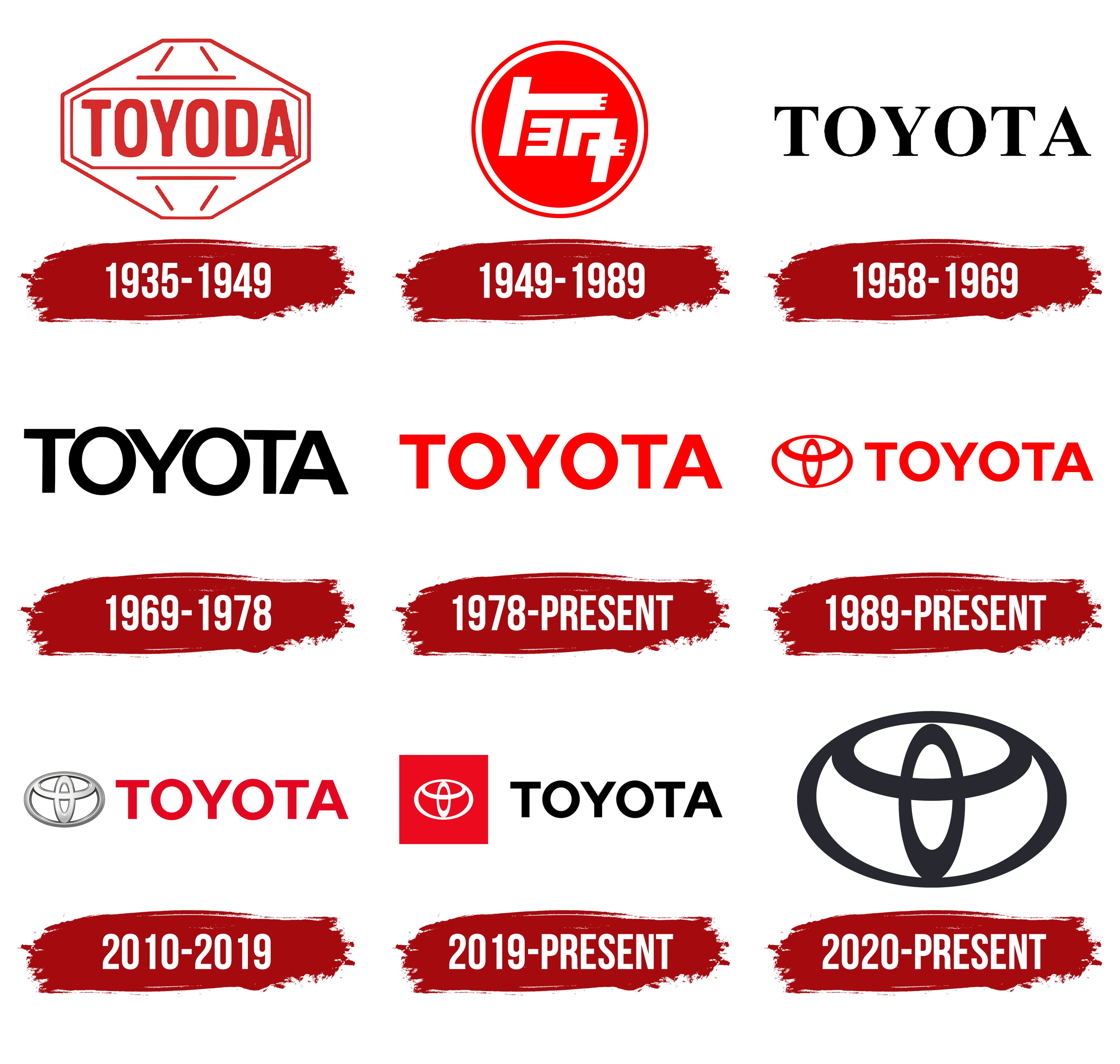Toyota: Driving Innovation and Sustainability in the Automotive Industry
 Since its inception in 1937, Toyota Motor Corporation has become synonymous with innovation, reliability, and sustainability in the automotive industry. From pioneering manufacturing techniques to leading the charge in hybrid and electric vehicle technology, Toyota has continually pushed the boundaries of what is possible, earning its place as one of the world's largest and most respected automakers.
Since its inception in 1937, Toyota Motor Corporation has become synonymous with innovation, reliability, and sustainability in the automotive industry. From pioneering manufacturing techniques to leading the charge in hybrid and electric vehicle technology, Toyota has continually pushed the boundaries of what is possible, earning its place as one of the world's largest and most respected automakers.
Toyota's journey began with the vision of its founder, Kiichiro Toyoda, who sought to create automobiles that would enrich society and enhance people's lives. The company's first car, the Model AA, rolled off the assembly line in 1936, marking the beginning of Toyota's storied history in the automotive world.
One of Toyota's most significant contributions to the automotive industry came in the form of the Toyota Production System (TPS), also known as "lean manufacturing." Developed in the 1950s and 1960s, TPS revolutionized the way cars were produced, emphasizing efficiency, quality, and continuous improvement. By eliminating waste and optimizing production processes, TPS allowed Toyota to manufacture high-quality vehicles at lower costs than its competitors, setting the stage for its global success. In the 1970s and 1980s, Toyota expanded its presence in international markets, establishing production facilities in countries such as the United States, the United Kingdom, and Australia. This global expansion solidified Toyota's position as a leading global automaker and paved the way for its continued growth and success in the years to come.
In the 1970s and 1980s, Toyota expanded its presence in international markets, establishing production facilities in countries such as the United States, the United Kingdom, and Australia. This global expansion solidified Toyota's position as a leading global automaker and paved the way for its continued growth and success in the years to come.
Throughout its history, Toyota has been at the forefront of automotive innovation, introducing groundbreaking technologies and vehicles that have reshaped the industry. In 1997, Toyota launched the Prius, the world's first mass-produced hybrid car. The Prius not only demonstrated Toyota's commitment to environmental sustainability but also paved the way for the widespread adoption of hybrid vehicles around the world. Building on the success of the Prius, Toyota has continued to invest in hybrid and electric vehicle technology, developing a diverse lineup of eco-friendly vehicles, including the Camry Hybrid, RAV4 Hybrid, and Mirai fuel cell vehicle. These vehicles combine the efficiency of electric power with the range and convenience of traditional gasoline engines, offering consumers environmentally friendly options without sacrificing performance or reliability.
Building on the success of the Prius, Toyota has continued to invest in hybrid and electric vehicle technology, developing a diverse lineup of eco-friendly vehicles, including the Camry Hybrid, RAV4 Hybrid, and Mirai fuel cell vehicle. These vehicles combine the efficiency of electric power with the range and convenience of traditional gasoline engines, offering consumers environmentally friendly options without sacrificing performance or reliability.
In addition to its focus on hybrid and electric vehicles, Toyota has also made significant strides in the development of hydrogen fuel cell technology. The Toyota Mirai, introduced in 2014, is the world's first mass-produced hydrogen fuel cell vehicle, emitting only water vapor as its exhaust. Toyota believes that hydrogen fuel cell technology holds great promise as a clean and sustainable energy source for transportation, and continues to invest in its development and adoption.
Beyond its commitment to technological innovation, Toyota has also prioritized sustainability and corporate social responsibility in its business practices. The company has set ambitious environmental goals, including a commitment to achieve carbon neutrality by 2050. To achieve this goal, Toyota is investing in renewable energy, electrification, and sustainable manufacturing processes, with the aim of reducing its carbon footprint across its entire value chain. In addition to its environmental initiatives, Toyota has also implemented programs to support communities and promote social welfare around the world. Through initiatives such as the Toyota Mobility Foundation and the Toyota Environmental Challenge 2050, the company is working to address global challenges such as urbanization, mobility, and environmental conservation.
In addition to its environmental initiatives, Toyota has also implemented programs to support communities and promote social welfare around the world. Through initiatives such as the Toyota Mobility Foundation and the Toyota Environmental Challenge 2050, the company is working to address global challenges such as urbanization, mobility, and environmental conservation.
Despite its many successes, Toyota has faced its share of challenges and setbacks over the years. The global financial crisis of 2008-2009, natural disasters such as the earthquake and tsunami in Japan in 2011, and the ongoing COVID-19 pandemic have all tested Toyota's resilience and adaptability. However, through strategic planning, innovation, and a commitment to its core values, Toyota has weathered these storms and emerged stronger than ever.
Looking ahead, Toyota is well-positioned to continue its legacy of innovation and sustainability in the automotive industry. With its strong brand reputation, technological expertise, and commitment to environmental stewardship, Toyota is poised to lead the transition to a cleaner, more sustainable future for transportation. As the world grapples with the challenges of climate change and environmental degradation, Toyota remains steadfast in its mission to create a better world through mobility and innovation.
Toyota's commitment to safety is evident in its development of advanced driver-assistance systems (ADAS) and autonomous driving technology. The company's Toyota Safety Sense suite, which includes features such as pre-collision braking, lane departure alert, and adaptive cruise control, aims to reduce the risk of accidents and improve overall road safety. Additionally, Toyota is investing in research and development efforts to bring fully autonomous vehicles to market, with the goal of enhancing mobility and reducing traffic accidents in the future.
In the realm of connectivity, Toyota is embracing the digital revolution by integrating smart technology into its vehicles. Features such as Toyota's Entune infotainment system and Toyota Connected Services provide drivers with access to navigation, entertainment, and communication tools, enhancing the driving experience and keeping passengers connected on the go.
Toyota's commitment to sustainability extends beyond its vehicles to its manufacturing processes and supply chain. The company is investing in renewable energy sources, such as solar and wind power, to reduce its carbon footprint and minimize its environmental impact. Toyota is also working with suppliers to implement sustainable practices and reduce waste throughout the production process. In addition to its efforts in sustainability and innovation, Toyota remains committed to fostering a culture of diversity, inclusion, and corporate social responsibility. The company's Toyota Diversity and Inclusion initiative aims to create a workplace where employees of all backgrounds feel valued and respected. Toyota also supports various community and philanthropic initiatives, including disaster relief efforts, education programs, and environmental conservation projects.
In addition to its efforts in sustainability and innovation, Toyota remains committed to fostering a culture of diversity, inclusion, and corporate social responsibility. The company's Toyota Diversity and Inclusion initiative aims to create a workplace where employees of all backgrounds feel valued and respected. Toyota also supports various community and philanthropic initiatives, including disaster relief efforts, education programs, and environmental conservation projects.
Despite its many achievements, Toyota faces challenges in an increasingly competitive and rapidly evolving automotive industry. The rise of electric vehicles, advances in autonomous driving technology, and shifting consumer preferences pose both opportunities and threats to Toyota's business model. However, with its long history of innovation, strong brand reputation, and commitment to quality and reliability, Toyota is well-equipped to navigate these challenges and continue to thrive in the years to come. In conclusion, Toyota's legacy as a leader in the automotive industry is built on a foundation of innovation, sustainability, and commitment to excellence. From its pioneering manufacturing techniques to its groundbreaking advancements in hybrid and electric vehicle technology, Toyota has continually pushed the boundaries of what is possible and set the standard for the rest of the industry. As the automotive landscape continues to evolve, Toyota remains steadfast in its mission to create a better future for mobility, society, and the planet.
In conclusion, Toyota's legacy as a leader in the automotive industry is built on a foundation of innovation, sustainability, and commitment to excellence. From its pioneering manufacturing techniques to its groundbreaking advancements in hybrid and electric vehicle technology, Toyota has continually pushed the boundaries of what is possible and set the standard for the rest of the industry. As the automotive landscape continues to evolve, Toyota remains steadfast in its mission to create a better future for mobility, society, and the planet.



























![[ℕ𝕖𝕧𝕖𝕣] 𝕊𝕖𝕝𝕝 𝕐𝕠𝕦𝕣 𝔹𝕚𝕥𝕔𝕠𝕚𝕟 - Is Trump Dying? Or Only Killing The Market?](https://cdn.bulbapp.io/frontend/images/a129e75e-4fa1-46cc-80b6-04e638877e46/1)



















